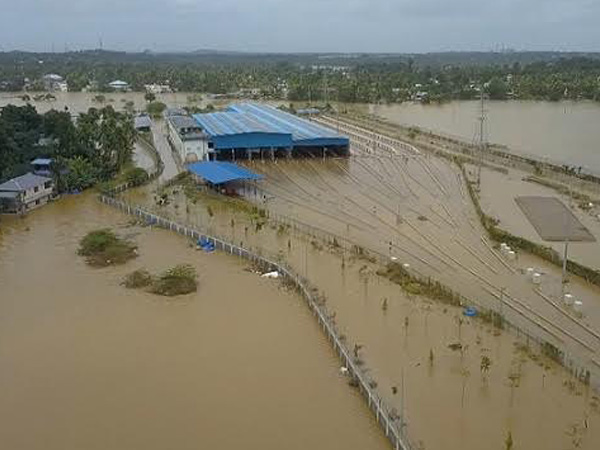2018 Kerala floods signalled ecological devastation of Western Ghats: Book

- Country:
- India
The floods that devastated large parts of Kerala in 2018 were not an isolated, freak phenomenon; rather they signaled something graver - the ecological devastation of the Western Ghats says a new book. Made a UNESCO World Heritage Site in 2012, the Ghats have become increasingly vulnerable to serious ecological damage, threatening the sustenance of their people.
The 2018 floods were a wake-up call for the region spanning 1,600 km and six states - Kerala, Tamil Nadu, Karnataka, Goa, Maharashtra, and Gujarat - that form an ecosystem older than the Himalayas. "In Flood and Fury: Ecological Devastation In The Western Ghats", Viju B looks into the crisis in the Western Ghats while documenting the devastating large-scale mining, quarrying, deforestation, and mismanagement of water resources, as also mapping its culture, history and ecology.
In the last six decades, the forest cover in the Western Ghats has been severely degraded due to human activity and rapid urbanization - an appalling 35 percent of the original forests in Western Ghats region have been destroyed, the author says. He says that there is an urgent need to ban mining and impose restrictions on construction activities in the fragile ecological regions of the Western Ghats.
According to Viju, the Kerala floods changed everything. "For the first time, the tribals in the Vazhachal forest, the coffee planters in Idukki, the farmers in Kuttanad, the rich businessmen who lived in palatial bungalows in cities and the NRIs who invested in resorts and plush houseboats on the Pamba river and Vembanad lake were united in tragedy," he says.
"But this unity was short-lived, arising more out of a survival impulse. When planners begin to talk about imposing regulations and zoning laws, it is met with immediate protests,” he writes in the book, published by Penguin Random House India. The need of the hour, the author says, is to hear the voices of the marginalised tribal communities, who are the first humans in the line of climatic and environmental impact and are struggling to come to terms with the changing topography and climatic conditions of the Western Ghats, caused by both natural and man-made interventions.
"Their understanding of the ecology seems to come from their deep-rooted wisdom of living with nature for centuries. In their dogmas and myths, there is always respect and admiration for nature, which was seen as ‘backward’ in the march of economic progress and prosperity," the book says. "Their developmental model of minimal manipulation of the natural landscape and of sustainable living is especially relevant in the era of climate change. These communities valued the eco-services provided by rivers and forests precisely because their own lives depended directly on the existence of these ecosystems," it says.
Viju suggests that the first step towards conservation of the Western Ghats would be empathizing with the concerns and aspirations of communities inhabiting them, and understanding their centuries-old subcultures that are rooted in the mountains. "Planners, bureaucrats and judicial entities failed to take into account the community rights of traditional communities living here while making rules and regulations and implementing orders," he says.
"The only way to protect the Sahyadri ranges is through understanding and enabling the sustenance of microcultures of that particular region, rather than simply imposing rules and regulations on them," he adds.
(This story has not been edited by Devdiscourse staff and is auto-generated from a syndicated feed.)
ALSO READ
Indian talent in IT sector will play important role in bringing jobs to India: Anurag Thakur
Indian-origin Singaporean minister emphasises importance of introducing children to Tamil language
Indian child sex offender arrested after Maryland courts give light sentences: ICE
'No ground' for Indian request for return of Kachchatheevu: Lanka Minister
India continues to be largest recipient of remittances, says RBI Governor Shaktikanta Das.










